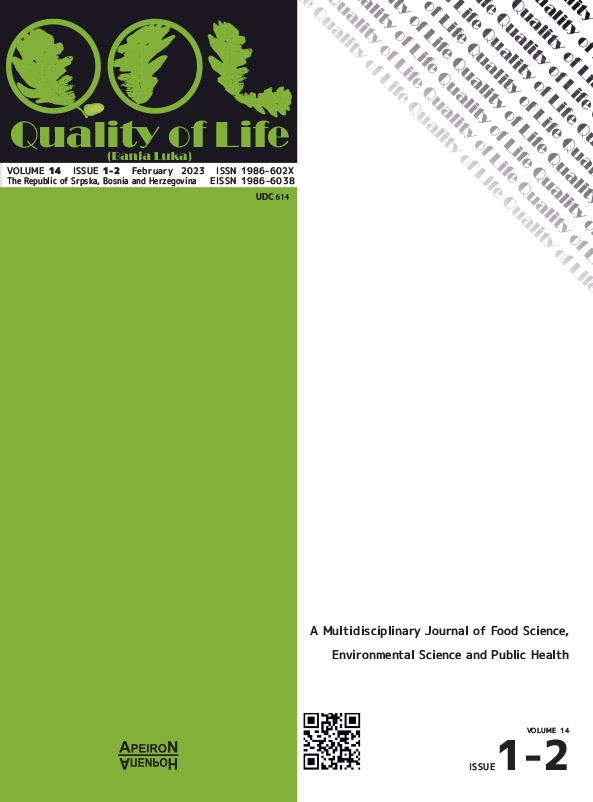Health Risk Assesssment of Benzen, Toluene and Xylene at a Landfill
DOI:
https://doi.org/10.7251/QOL2301047MAbstract
The municipal solid waste (MSW) landfill is recognized as an anthropogenic source of air pollutants that can have a negative impact on human health and the environment. Workers who work at the MSW landfill may be exposed to risk due to the inhalation of substances such as volatile organic compounds (VOCs). Although VOCs account for <1% in landfill gas, they are important because of the high level of toxicity associated with them. Regular monitoring of air quality and risk assessment provides important information in protecting the health of workers at the landfill. This study focuses on a health risk assessment related to VOCs (benzene, toluene and xylene) exposure via inhalation for workers at a landfill Banja Luka, Republic of Srpska, Bosnia and Herzegovina. Additionally, cancer risk and non-cancer risk of benzene, toluene and xylene of workers indicated that occupational exposures were above recommended standard. This implies that landfill workers are exposed to a significant health risk associated with inhalation exposure to VOCs
